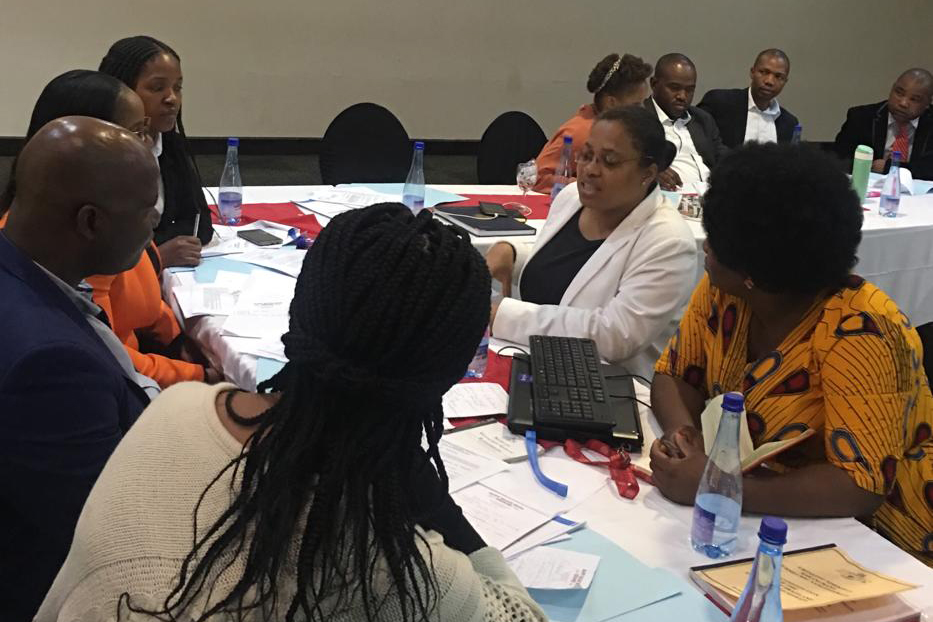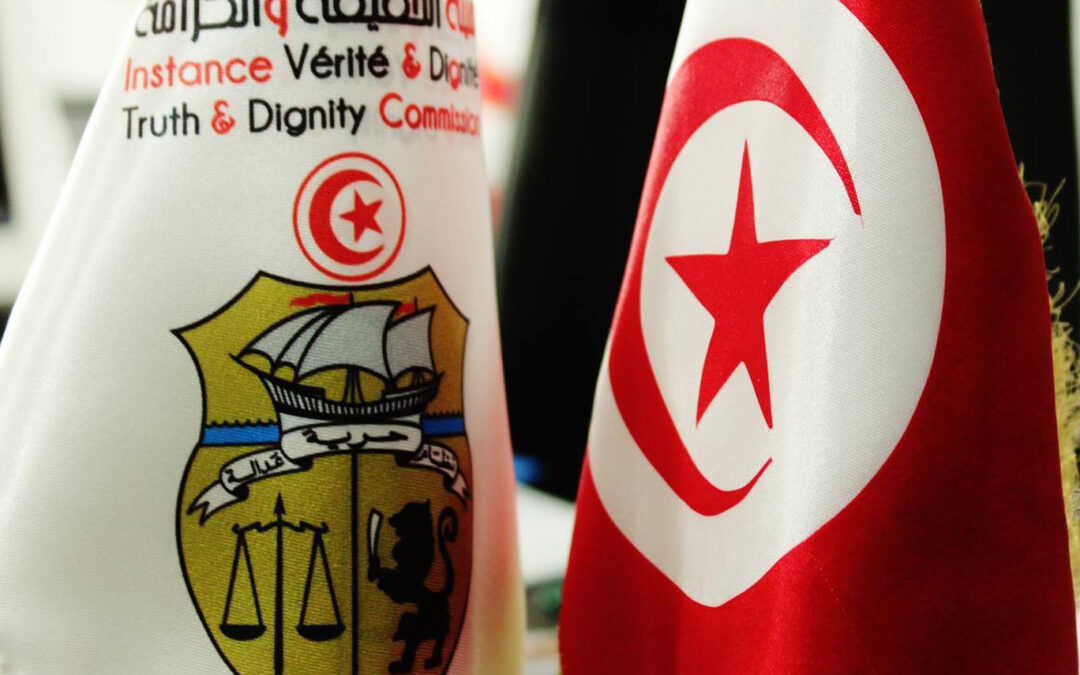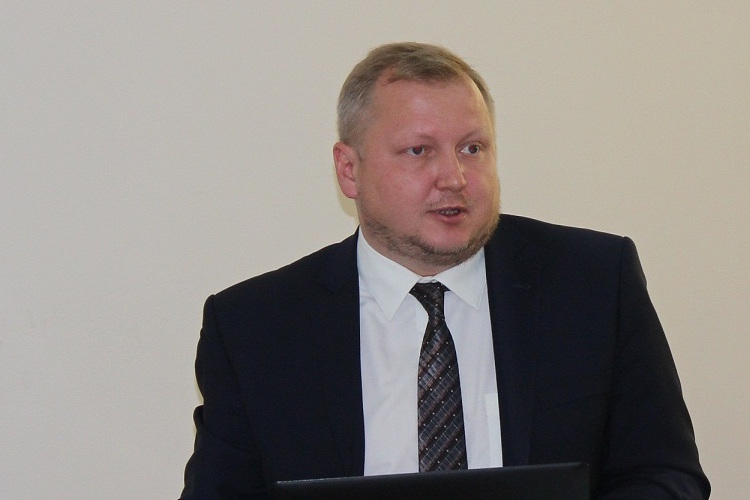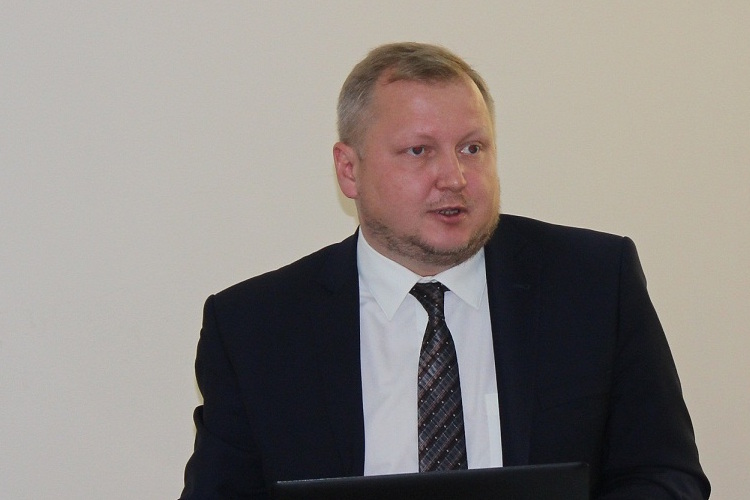
Jun 3, 2019 | Адвокаси, Юридические заявления
МКЮ и IBAHRI подали в Комитет ООН по правам человека свое представление о соблюдении Таджикистаном своих обязательств по Международному пакту о гражданских и политических правах.
В рамках своей 126-ой сессии, которая пройдет с 1 по 26 июля 2019 г., Комитет по правам человека («Комитет») рассмотрит вопрос о реализации Республикой Таджикистан положений Международного пакта о гражданских и политических правах (МПГПП или Пакт), в том числе в свете третьего периодического доклада государства-участника.
В контексте рассмотрения указанного вопроса Институт по правам человека Международной ассоциации адвокатов (IBAHRI) и Международная комиссия юристов (МКЮ) считают необходимым обратить внимание Комитета на ряд вопросов, вызывающих беспокойство с точки зрения реализации Таджикистаном положений МПГПП. Настоящее представление выделяет ряд проблем, связанных с недостаточной независимостью юридической профессии в Таджикистане, а также последствия данной ситуации с точки зрения защиты ряда прав, гарантированных Пактом. В частности, в настоящем представлении рассматриваются следующие вопросы:
(а) отсутствие независимости юридической профессии;
(b) вмешательство властей в законную деятельность адвокатов;
(с) ограничения в отношении доступа адвокатов к доверителям и прав защиты; а также
(d) конкретные примеры проблемных ситуаций.
Указанные проблемы имеют отношение к оценке Комитетом реализации Республикой Таджикистан права на справедливое судебное разбирательство по статье 14 МПГПП, а также иных прав, гарантированных Пактом, в том числе, к примеру, обязательств государства по статьям 2, 7, 9 и 10 МПГПП.
Текст представления доступен здесь:
Tajikistan-ICCPR-Advocacy-non legal submission-2019-RUS

May 30, 2019 | News
On May 29 2019, the ICJ facilitated a workshop with a number of justice sector officials and stakeholders who are active in the implementation of the Sexual Offenses and Domestic Violence Act (SODVA).
Building on previous engagements in 2018 and 2019, the participants decided on a clear plan of action for further coordination towards the eradication of sexual and gender based violence (SGBV) in Eswatini.
Participants in the meeting included representatives from the Office of the Director of Public Prosecutions, the Office of the Deputy Prime Minister, the police, correctional services, the judiciary and the Medical and Dental Association of Eswatini.
The meeting, was opened by ICJ Commissioner and Principal Judge of the High Court of Eswatini, Justice Qinisile Mabuza.
“For too many years, the clamour for this law has been loud; now that we have it, we have to interrogate how efficiently we are using it and check for the gaps that we need to address. Its implementation is in our hands, and we cannot allow ourselves to fail those that need our protection; we cannot fall foul of failing in our duty,” said Judge Mabuza.
A draft report, commissioned by the ICJ, was presented by Nonhlanhla Dlamini, the Director of Swaziland Action Group Against Abuse (SWAGAA).
The report, provided participants with a contextual analysis of challenges faced by survivors of SGBV in accessing the justice system in Eswatini.
ICJ Legal Adviser Timothy Fish Hodgson discussed key provisions of the SODV Act and the need for their interpretation and application consistently with the Convention on the Elimination of Discrimination Against Women.
SWAGAA’s draft report revealed that despite the enactment of the SODV Act significant barriers to access to justice for survivors of SGBV remain.
These include:
- Underreporting of SGBV;
- Stereotyping and discrimination faced by survivors when reporting;
- Partial application of SODV Act due to lack of knowledge on the part of key justice sector actors;
- Under-resourcing, lack of infrastructure and services presupposed by SODV Act which prevents full implementation;
- Continued stereotype-driven assumptions made by courts despite the outlawing of such approaches in the SODV Act;
- Lack of due diligence in the collection of medical evidence;
- A perception on the part of survivors that perpetrators are better taken care of in the prosecution process than survivors; and
- A growing and inaccurate perception of the SODV Act and its purposes, which has been facilitated by misleading media reports.
Participants made practical recommendations of how challenges could be addressed in their particular environments. Stressing the need to ensure continued collaboration and momentum in the implementation of the SODV Act, ICJ Africa Director Arnold Tsunga observed that: “Whether this process actually builds towards better protection from SGBV for the marginalized in Eswatini and the SODV Act’s impact is dependent on how participants in this platform and other officials are able to adopt practical measures and implement them effectively.”

May 29, 2019 | Communiqués de presse, Nouvelles
Un an après le début des travaux des chambres criminelles spécialisées en justice transitionnelle en Tunisie, les organisations de la Coalition pour la justice transitionnelle, dont la CIJ, déplorent aujourd’hui les nombreuses difficultés et contraintes subies par ces chambres, entravant ainsi leur fonctionnement normal et menaçant l’issue des affaires qu’elles traitent.
Les travaux des chambres criminelles spécialisées en justice transitionnelle ont démarré avec l’examen du dossier de M. Kamel Matmati le 29 Mai 2018 au Tribunal de 1ère Instance de Gabès.
Les organisations de la Coalition pour la justice transitionnelle organisent une série d’activités en commémoration de cette importante date dans l’histoire de la Tunisie tant elle est cruciale pour la révélation de la vérité, de la mémoire et de la lutte contre l’impunité.
Elles appellent ainsi les autorités tunisiennes à s’engager pour le suivi et l’application du processus de justice transitionnelle, le renforcement des chambres spécialisées et à leur protection institutionnelle.
Le communiqué a été signé par la CIJ avec d’autres organisations membres de la Coalition pour la justice transitionnelle.
Il peut être téléchargé ici:
Tunisia-CP Chambres Spécialisées-News-Press releases-2019-FRE (version française, PDF)
Tunisia-CP Chambres Spécialisées-News-Press releases-2019-ARA (version arabe, PDF)

May 24, 2019 | News
Following the decision of the Petropavlovsk Court to disbar Sergey Sizintsev the former Executive Director of the National Bar Association, the ICJ reiterates its concerns at the unjustified proceedings against him.
The ICJ calls on the relevant authorities to revise the decision to disbar Sizintsev, which is not issued in accordance with the law and may constitute retaliation for his open criticism of the problematic reform of the legal profession in Kazakhstan.
On 21 May, the Petropavlovsk City Court No. 2, in a hearing chaired by judge Larisa Krukova, approved the application of the Ministry of Justice of the Republic of Kazakhstan to revoke Sergey Sizintsev’s license to practice law.
The formal reason for the disbarment was that the lawyer practiced law while being the Executive Director of the Republican Bar Association from 2016 to 2018.
According to the complaint of the Ministry of justice, a member of the Bar Association was prohibited from “occupying a position in the public service or engaging in business activities or holding any other paid position” in accordance with article 33.11 of the “Law on Advocates Activity and Legal Aid”.
Sizintsev argued that the Ministry of Justice incorrectly interpreted the notion of “another paid position”, since the second sentence of the same article states that “A lawyer has the right to be elected to a paid elected or appointed position in the Bar Association, the Republican Bar Association and international public associations of lawyers”.
Also, the lawyer stated that he had previously addressed a request to the Ministry of justice asking about possibility of holding a position in the Bar Association and working as an advocate and the Ministry of justice in its official response stated that “Lawyers occupying elective or appointed posts in the territorial or Republican bar associations are not obliged to take any action to terminate their license to engage in advocacy, unless there are other grounds provided by law”.
It was also answered, “that in this connection, for the indicated reasons, the validity of the license for the right to engage in advocacy activity should not been suspended”. In addition, the Ministry of Justice previously voiced a similar position on its official web-portal in response to a request from another user.
The ICJ has previously raised concerns that pressure on Sizintsev and other lawyers started after they had actively advocated against the law “On Advocates Activity and Legal Aid”, which attempted to interfere with the independence of the legal profession.
In that regard, the ICJ reiterates that according to the UN Basic Principles on the Role of Lawyers, lawyers like other citizens are entitled to freedom of expression, belief, association and assembly.
In particular, they have the right to take part in public discussion on matters concerning the law, the administration of justice and the promotion and protection of human rights and to join or form local, national or international organizations and attend their meetings, without suffering professional restrictions by reason of their lawful action or their membership in a lawful organization. (Principle 23).
In cases of disciplinary action against lawyers, international standards provide that “[a]ll disciplinary proceedings shall be determined in accordance with the code of professional conduct and other recognised standards and ethics of the legal profession and in the light of [the UN Basic Principles on the Role of Lawyers]” (Principle29).
Therefore, the ICJ calls for the case to be reconsidered on appeal in accordance with the clear terms of Article 33.11 of the Law on Advocates Activity and Legal Aid, and in light of the rights of lawyers to exercise their freedom of expression and association including through participation in organisations of lawyers and through criticism of legislation affecting the profession.
The ICJ further calls on the Ministry of Justice to end pressure on the active members of the Bar Association for legitimate exercise of their rights and duties as lawyers in accordance with the national legislation and international human rights standards and law.

May 24, 2019 | Новости, Статьи
По итогам вынесения Петропавловским судом решения о лишении Сергея Сизинцева, бывшего исполнительного директора Республиканской коллегии адвокатов, адвокатской лицензии МКЮ повторно выражает обеспокоенность в связи с несправедливостью данного производства.
МКЮ призывает компетентные органы пересмотреть решение о лишении Сизинцева адвокатской лицензии, так как оно не было вынесено в соответствии с законом и может стать формой возмездия за критику, с которой адвокат открыто выступил по проблематичному вопросу о реформе юридической профессии в Казахстане.
21 мая Петропавловский городской суд № 2 под председательством судьи Ларисы Крюковой удовлетворил заявление Министерства юстиции Республики Казахстан о лишении Сергея Сизинцева адвокатской лицензии.
Официальным основанием для лишения Сизинцева лицензии является его пребывание в должности директора Республиканской коллегии адвокатов в 2016-2018 гг. одновременно с осуществлением адвокатской деятельности.
Как следует из искового заявления Министерства юстиции, по статье 33.11 «Закона об адвокатской деятельности и юридической помощи», член Республиканской коллегии адвокатов не вправе «состоять на государственной службе и заниматься предпринимательской деятельностью, занимать иную оплачиваемую должность».
Сизинцев возражал, что Министерство юстиции неправильно истолковало понятие «иная оплачиваемая должность», поскольку второе предложение того же пункта прямо устанавливает, что «адвокат вправе быть избранным на оплачиваемую выборную или назначаемую должность в коллегии адвокатов, Республиканской коллегии адвокатов и международных общественных объединениях адвокатов».
Кроме того, адвокат указывал, что ранее направлял запрос в Министерство юстиции относительно возможности совмещения должности в коллегии адвокатов с адвокатской деятельностью, и получил от Министерства официальный ответ о том, что «адвокаты, занимающие выборную или назначаемую должность в территориальных или Республиканской коллегии адвокатов, не обязаны совершать какие-либо действия с целью прекращения своей лицензии на адвокатскую деятельность, при отсутствии иных обстоятельств, предусмотренных законом».
Кроме того, в своем ответе Минюст указал, что «в данной связи, по изложенным основаниям, действие лицензии на право осуществления адвокатской деятельности не приостанавливается». Кроме того, Министерство ранее уже выражало аналогичную позицию по данному вопросу на своем официальном сайте в ответ на запрос другого лица.
МКЮ уже выражала обеспокоенность в связи с тем, что на Сизинцева и других адвокатов стало оказываться давление после того, как они активно выступили против принятия закона «Об адвокатской деятельности и юридической помощи», который представлял попытку вмешательства в независимость юридической профессии.
В данном отношении МКЮ повторяет, что, в соответствии с Основными принципами ООН, касающимися роли юристов, адвокаты, как и другие граждане, пользуются свободой выражения мнения и свободой собраний и объединений.
В частности, они имеют право принимать участие в общественных дискуссиях по вопросам, касающимся права, отправления правосудия и поощрения и защиты прав человека, и быть членами местных, национальных или международных организаций или создавать их и принимать участие в их заседаниях, не подвергаясь ограничению своей профессиональной деятельности вследствие своих законных действий или членства в законной организации (принцип 23).
В случае привлечения адвокатов к дисциплинарной ответственности международные стандарты предусматривают, что «все дисциплинарные меры определяются в соответствии с кодексом профессионального поведения и другими признанными стандартами и профессиональной этикой юриста и в свете [Основных принципов ООН, касающихся роли юристов]» (принцип 29).
Поэтому МКЮ призывает к апелляционному пересмотру дела в соответствии с четкой формулировкой положений статьи 33.11 закона «Об адвокатской деятельности и юридической помощи», а также в свете прав адвокатов осуществлять свою свободу выражения мнения и объединений, в том числе путем участия в организациях адвокатов и критики законодательства, затрагивающего юридическую профессию.
МКЮ также призывает Министерство юстиции прекратить оказывать давление на активных членов коллегии адвокатов, которые законным образом осуществляют свои права и обязанности адвокатов в соответствии с национальным законодательством и международными стандартами и правом в области прав человека.








